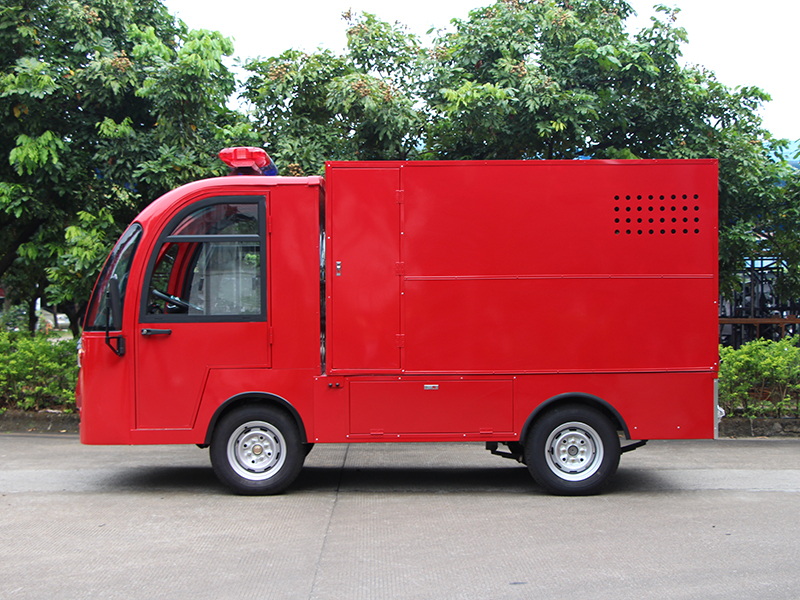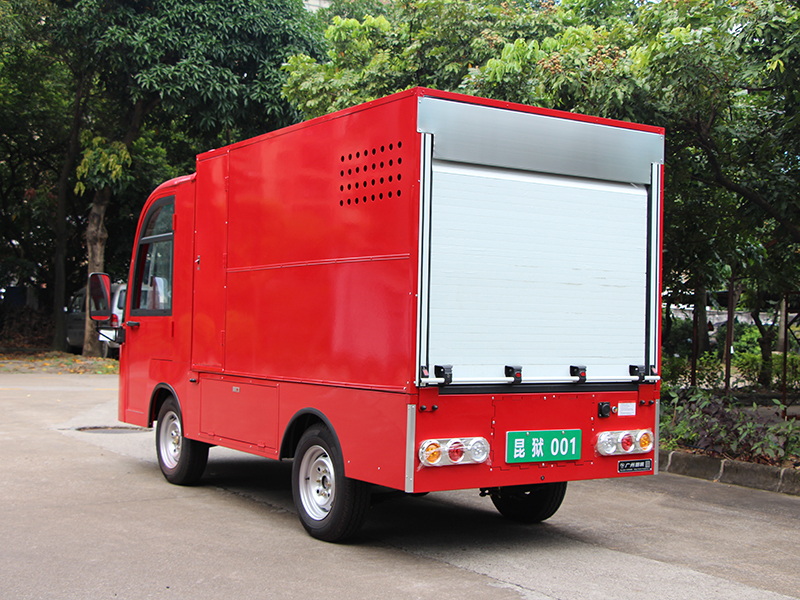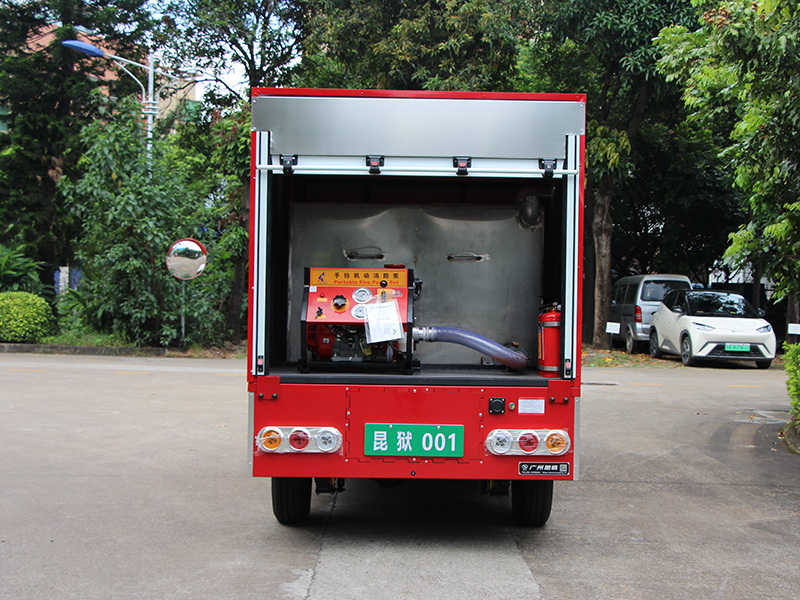Content Menu
● Rising Market Demand and Industry Overview in France
● Leading Electric Ambulance Cart Manufacturers in France
>> Renault: A Benchmark in Electric Ambulance Innovation
>> Peugeot: Compact and Technologically Advanced EMS Solutions
>> WAS Vehicles: Customized, Climate-Neutral Emergency Vehicles
>> Alke': High-Performance Electric Medical Vehicles
● OEM and Supplier Services for Electric Ambulance Carts in France
● Current Trends Influencing France's Electric Ambulance Cart Market
● Challenges and Opportunities
● Conclusion
● Frequently Asked Questions (FAQ)
>> 1. What are the benefits of electric ambulance carts compared to traditional models?
>> 2. Which companies are the top electric ambulance cart manufacturers in France?
>> 3. How long do these electric ambulance carts run on a single battery charge?
>> 4. Can electric ambulance carts be customized for specific EMS requirements?
>> 5. What technological advancements are featured in French electric ambulance carts?
● Citations
The demand for eco-friendly, efficient emergency medical transportation solutions is growing rapidly in France, a nation that prioritizes sustainability and advanced healthcare services. Electric ambulance carts, compact, zero-emission vehicles, are increasingly recognized as essential for enhancing emergency medical response, especially in dense urban settings. French manufacturers and suppliers are at the forefront of this evolution, offering a wide range of high-tech electric ambulance carts tailored to meet the needs of EMS providers.
This article explores the top electric ambulance cart manufacturers and suppliers in France, highlighting their offerings, industry trends, customization capabilities, and the dynamic regulatory environment shaping this sector. Designed to benefit EMS providers, government agencies, and international buyers, this comprehensive overview showcases why France stands out as a leader in electric ambulance cart technology and production.

Rising Market Demand and Industry Overview in France
The France emergency ambulance vehicle market, encompassing electric ambulance carts, is expanding steadily due to several critical factors. Regulatory incentives from the government promote zero-emission vehicles as part of France's national climate goals. Increasing urbanization and population density in cities like Paris demand compact, maneuverable EMS vehicles capable of navigating traffic while ensuring timely patient transport.
Market leaders such as Renault, Peugeot, and niche manufacturers like WAS Vehicles have contributed to this growth by developing electric ambulance carts that combine medical functionality with green technology. These vehicles comply with stringent European safety and medical standards and integrate innovations such as telemedicine systems, GPS fleet management, and ergonomic patient care interiors.
The sector faces challenges like high initial investment costs and regulatory complexities, but robust government support, rising healthcare expenditure, and technological advancements are expected to sustain strong growth through 2031 and beyond.
Leading Electric Ambulance Cart Manufacturers in France
Renault: A Benchmark in Electric Ambulance Innovation
Renault leads as a pioneer in France's electric ambulance cart market, leveraging its extensive expertise in electric vehicle technology. The Renault Master Z.E. platform forms the backbone of their electric ambulance carts, purpose-built to meet EMS specifications. These carts offer a spacious interior capable of supporting medical equipment, patient stretchers, and healthcare personnel comfortably and safely.
Renault's electric ambulance carts feature high-capacity lithium-ion batteries enabling ranges up to 200 kilometers, with regenerative braking systems to optimize efficiency. Coupled with advanced safety mechanisms and customizable medical fit-outs, Renault provides EMS operators with reliable vehicles that align with France's sustainability initiatives.
Peugeot: Compact and Technologically Advanced EMS Solutions
Peugeot focuses on delivering electric ambulance carts that balance compactness with high performance. Their electric ambulances excel in urban environments where traffic congestion is a challenge. These carts include modern navigation and patient monitoring technologies, enhancing communication between EMS teams and hospitals.
Peugeot emphasizes ergonomic cabin designs aimed at boosting patient comfort and safety during transit. The integration of telemedicine capability allows medics to consult remotely, supporting patients with continuous care even while en route to medical facilities.
WAS Vehicles: Customized, Climate-Neutral Emergency Vehicles
WAS Vehicles is a specialist French manufacturer known for electric ambulance carts tailored to specific client needs. Their flagship model, the WAS 500 E, boasts an electric drivetrain delivering up to 140 kW power and a range between 200 to 250 km, suitable for longer ambulance shifts without recharging.
Their electric ambulance carts incorporate features like quick charging (1.5 to 3 hours), climate control for patient comfort, and adaptable drive configurations (2WD or optional 4WD) tailored for diverse terrains. WAS supports extensive OEM customization, including medical equipment installations and specialized EMS communications systems, catering to domestic and international clients.
Alke': High-Performance Electric Medical Vehicles
Alke' specializes in electric vehicles designed for industrial and emergency service use. Their electric ambulance carts deliver exceptional torque and progressive power control systems that enable smooth and reliable operation in demanding emergency scenarios. The modularity of battery packs allows for optimized power management and extended operational times, essential for EMS teams working in remote or high-demand zones.
Ergonomic design principles are central to Alke's ambulance carts, ensuring ease of operation for medical personnel and enhanced patient care capabilities inside the vehicle.

OEM and Supplier Services for Electric Ambulance Carts in France
French suppliers offer robust OEM and ODM services that tailor electric ambulance carts to the specific needs of EMS providers. Such customizations include:
- Integration of specialized medical equipment like ventilators, defibrillators, and advanced life support units.
- Custom branding and utility accessories tailored for government agencies or private EMS companies.
- Training programs to equip dealers and maintenance crews with knowledge for proper vehicle upkeep.
- Innovative energy solutions such as solar charging systems to supplement battery life and reduce downtime.
These suppliers leverage France's logistical advantage within Europe, ensuring efficient distribution and service responsiveness for clients across the continent. Partnerships with technology providers facilitate the incorporation of IoT devices, real-time patient monitoring, GPS tracking, and fleet management tools, all critical for modern EMS operations.
Current Trends Influencing France's Electric Ambulance Cart Market
Several transformative trends define the direction of electric ambulance carts in France:
- Regulatory Push for Sustainability: Government policies incentivize the shift from diesel and petrol ambulances to electric models. Emission regulations and subsidies for electric vehicles encourage adoption by public and private EMS fleets.
- Advanced Technology Integration: Telemedicine, AI-enabled patient diagnostics, GPS-based route optimization, and automated emergency alerts enhance operational efficiency and patient outcomes.
- Urban Mobility Solutions: Compact ambulance carts designed specifically for crowded city streets reduce response times and improve maneuverability.
- Enhanced Comfort and Safety: Using ergonomic designs and medical-grade interiors, manufacturers prioritize patient safety and comfort alongside functionality.
- Battery and Charging Innovations: Fast-charging lithium-ion battery systems and optional solar panels improve operational range and reduce charging downtime.
Challenges and Opportunities
While booming interest and government support boost the electric ambulance cart market, challenges persist. Compliance with evolving safety and medical standards can complicate design and manufacturing processes. Budget constraints at municipal or hospital levels may slow procurement of advanced EMS vehicles.
On the opportunity side, collaboration between ambulance manufacturers and healthcare providers creates scope for highly specialized electric ambulance carts. Integration with digital health technologies and IoT devices offers new service paradigms, increasing efficiency and patient care quality. French companies leading innovation are expected to set trends globally and expand their export footprint.
Conclusion
The Electric Ambulance Cart Manufacturers and Suppliers in France are spearheading a transformation in emergency medical services through sustainable, efficient, and technologically advanced electric ambulance carts. Industry leaders Renault, Peugeot, WAS Vehicles, and Alke' demonstrate innovation with versatile models that meet the challenging demands of modern EMS operations.
With increasing governmental backing, healthcare investments, and technological progress, France is positioned as a global hub for electric ambulance cart development. These vehicles promise faster ambulance response times, improved patient comfort, and a substantial reduction in environmental footprint, signaling a pivotal shift toward sustainable emergency medical transportation.
As the market continues to evolve, OEM customization, battery technology, and digital health integration will drive further advancements, solidifying the role of electric ambulance carts in delivering critical care effectively and responsibly.

Frequently Asked Questions (FAQ)
1. What are the benefits of electric ambulance carts compared to traditional models?
Electric ambulance carts reduce emissions and noise pollution, leading to improved urban air quality and less disturbance during emergency responses. They have lower operational costs and require less maintenance than combustion engine ambulances, alongside enhanced maneuverability in tight city spaces.
2. Which companies are the top electric ambulance cart manufacturers in France?
Renault, Peugeot, WAS Vehicles, and Alke' are recognized as France's leading manufacturers innovating in electric ambulance cart design, technology, and OEM services.
3. How long do these electric ambulance carts run on a single battery charge?
Current generation models typically offer ranges between 150 and 250 kilometers per charge, with some supporting rapid charging that reduces downtime substantially.
4. Can electric ambulance carts be customized for specific EMS requirements?
Yes, many French suppliers provide OEM and ODM services enabling customization of vehicle interiors, medical equipment integration, drive configurations, and branding to match client needs.
5. What technological advancements are featured in French electric ambulance carts?
These carts incorporate GPS fleet management, telemedicine systems for on-route patient monitoring, ergonomic interior designs, fast-charging battery technology, and in some models, solar-assisted charging.
Citations
[1](https://www.6wresearch.com/industry-report/france-emergency-ambulance-vehicle-market-outlook)
[2](https://www.datainsightsmarket.com/reports/electric-ambulance-782968)
[3](https://www.linkedin.com/pulse/france-powered-medical-computer-carts-market-key-highlights-fm1kf)
[4](https://www.hatsgroup.com/news-story/our-new-electric-ambulance/)
[5](https://www.linkedin.com/pulse/france-medical-powered-cart-market-key-highlights-2025-budgetverse-x9z2e)
[6](https://www.was-vehicles.com/en/electric-vehicles)
[7](https://www.langqinggolfcart.com/electric-ambulance-carts-manufacturer.html)
[8](https://www.alke.com)
[9](https://www.verifiedmarketreports.com/product/electric-ambulance-market/)
[10](https://www.was-vehicles.com/en/electric-vehicles/was-500-e-ambulance-box-body-55-t)










































